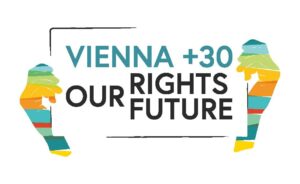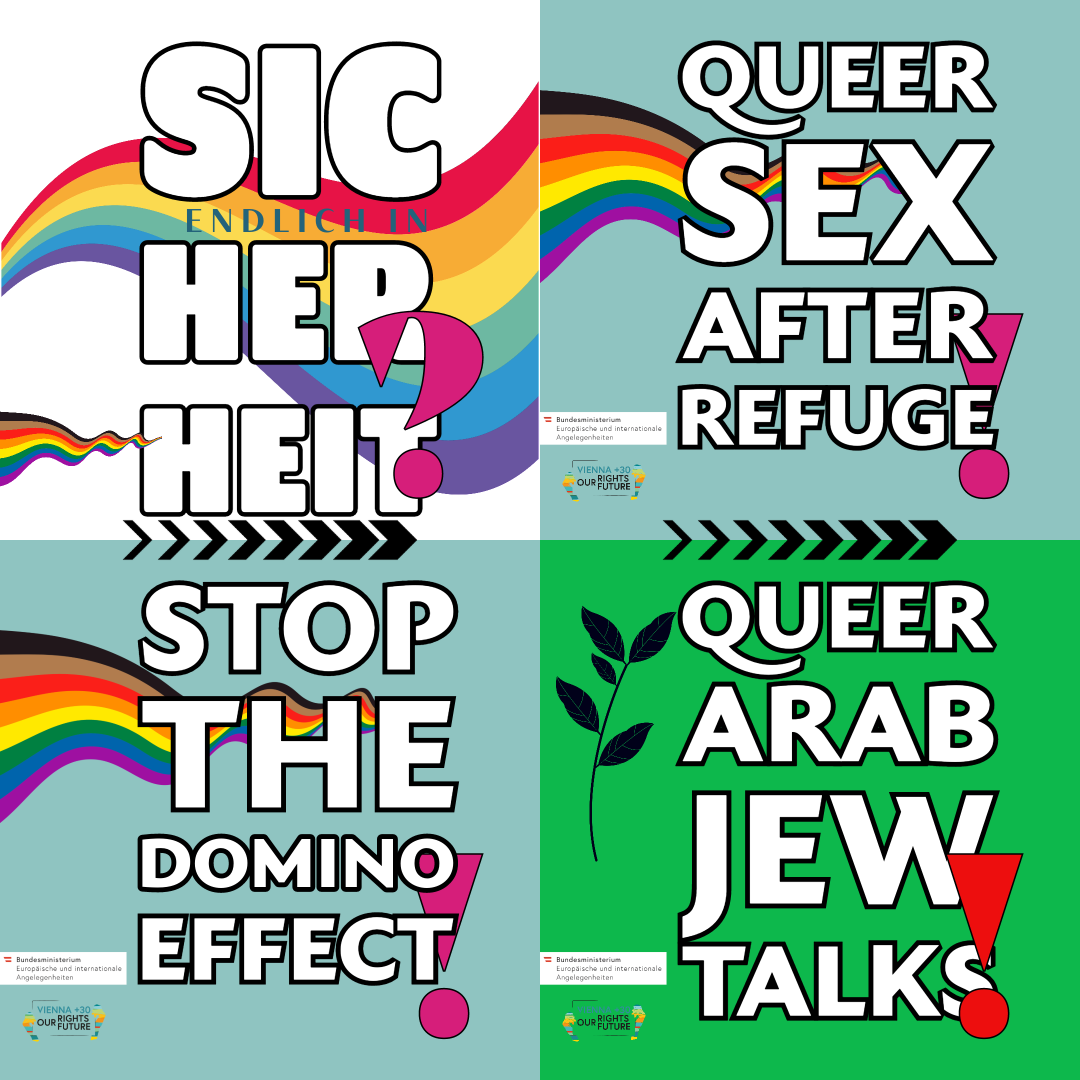
Safe at Last!
LGBTIQ people are fighting for their human rights in many countries, but criminalization is advancing in many places. The Queer Base organized the event series “Finally safe!” organized places to discuss life in Austria, how sexual orientation or gender identity can be lived out safely, what effects conflicts have in my country of origin and how human rights activism can continue in the diaspora.
With the workshop “Queer Sex After Refuge” we continued our series “On the Tip of the Tongue”.
Hopes are high that everything will be okay in an LGBTIQ-friendly country! You’ll be able to live your sexuality and gender identity the way you’ve always dreamed of. But then you find yourself in an environment that stresses you out, is full of high expectations and pressures you to be open to everything, and your insecurities have never left you. 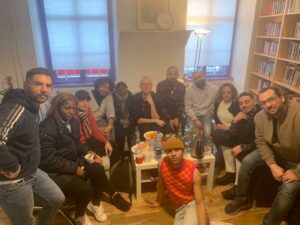 There’s the baggage you brought with you and now you have to deal with racism, the fear of letting down one community or another that you belong to. And then there’s the bad news from your home country. Sexuality and living out your identity are fundamental human rights. This workshop focused on creating a “braver space” for an exchange on how to deal more consciously and safely with sex, romance and feelings.
There’s the baggage you brought with you and now you have to deal with racism, the fear of letting down one community or another that you belong to. And then there’s the bad news from your home country. Sexuality and living out your identity are fundamental human rights. This workshop focused on creating a “braver space” for an exchange on how to deal more consciously and safely with sex, romance and feelings.
Fedaa Alarnaoot and Berni Ledinski from Queer Base, who led the workshop, focused on the following aspects:
- What definitions of sexuality are present among the participants?
- What forms of bodies and body perceptions do you know?
- What forms of relationships are there?
For self-determined sexuality, it is necessary to know your own boundaries, to develop a sense of consent and to recognize differences that exist due to previous experiences. The interactive workshop enabled a lively exchange on these questions and a continuation is planned…
A panel discussion titled “Queer Arab Jews Talk” was dedicated to the aftermath of the events of October 7th and the Israel/Gaza war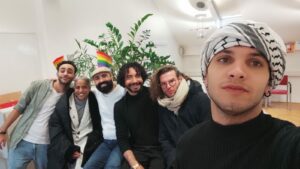
We need to talk! Since the massacres of October 7 and the start of the recent war in Gaza, the LGBTIQ community has been in turmoil for many weeks. We have witnessed a lot of demonization and dehumanization as well as anti-Semitic and anti-Palestinian prejudice. Living in the Palestinian and Jewish diaspora means that this ongoing conflict is felt in many places. For example, the right to citizenship, and in this sense to existence and security, is a basic human right, and the Jewish and Palestinian communities can relate to this in many ways. The panel aimed to create a space for queers living in Vienna who are either Israeli/Jewish/Palestinian.
Under the moderation of Muhammad Hayatleh from Queer Base, people from the MENA region with both Arab and Israeli/Jewish histories came together. Due to the sensitivity of the workshop topic, especially in light of the current political situation in the Middle East, we attached great importance to creating a basis of trust among the participants through introductory sessions.
The workshop pursued a discussion approach with open questions, e.g
- Individual perspectives on concepts such as “home” and “belonging”
- Addressing antisemitism in MENA countries and exploring possible comparisons with Western models
- Subtleties and commonalities between the historical experiences of Jewish communities in Europe, especially before the Shoah, and the current challenges of various marginalized groups
“Stop the Domino Effect” and a focus on developments in Uganda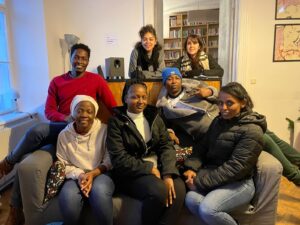
The human rights situation of LGBTIQ people is deteriorating in many countries, and even in countries such as the USA there is a downward trend. Human rights defenders from countries such as Ethiopia, Uganda and Iraq are particularly at risk. In a panel talk with Hamza Kwehangana and Philip Masembe, who both had to leave their countries because of their human rights activism, we tried to outline the devastating developments and the global impact of these anti-democratic changes.
The developments in Uganda have had a massive impact on the LGBTIQ community, with many fleeing to neighboring countries in search of protection. Discussions included
- the influence of religious groups (e.g. evangelical sects from the USA),
- how queerphobia is being used by the Ugandan government to create sentiment and
- the possibilities of international solidarity
The project was funded by
This post is also available in: Deutsch (German)

OTTOTT Videos

